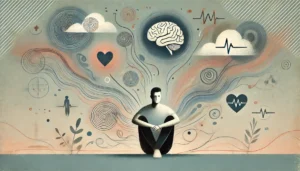What is Psychiatry?
Psychiatry is a branch of medicine focused on diagnosing, treating, and preventing mental, emotional, and behavioral disorders. It plays a vital role in maintaining mental well-being by addressing conditions such as anxiety, depression, schizophrenia, and substance abuse disorders.
Why is Psychiatry Important?
1. Early Diagnosis of Mental Health Issues
Psychiatrists are trained to recognize early signs of mental health conditions. Timely diagnosis can prevent these issues from escalating and improve the overall quality of life.
2. Personalized Treatment Plans
Every individual’s mental health journey is unique. Psychiatrists provide customized treatment plans, including therapy, medication, or a combination, tailored to the patient’s needs.
3. Support During Crisis
Psychiatrists offer critical support during mental health crises, ensuring safety and providing immediate care.
4. Managing Chronic Conditions
Long-term mental health disorders, such as schizophrenia or bipolar disorder, require ongoing care. Psychiatrists help manage these conditions effectively.
Common Mental Health Conditions Treated by Psychiatrists
1. Anxiety Disorders
Anxiety affects millions worldwide, causing persistent worry and fear. Psychiatrists use cognitive-behavioral therapy (CBT) and medication to help patients.
2. Depression
Depression can be debilitating, affecting daily life. Psychiatrists address it through therapy, antidepressants, and lifestyle changes.
3. Schizophrenia
This severe mental disorder impacts how a person thinks, feels, and behaves. Psychiatry offers treatments to manage symptoms effectively.
4. Substance Abuse Disorders
From alcohol to opioids, psychiatrists address addiction issues through counseling and medication-assisted therapy.
The Role of Therapy in Psychiatry
Therapy is a cornerstone of psychiatry, helping patients:
1. Understand Their Condition
Therapy provides clarity about the causes and effects of mental health issues.
2. Develop Coping Mechanisms
Skills learned in therapy empower individuals to handle stress and challenges better.
3. Improve Relationships
Therapy can enhance communication and understanding in personal and professional relationships.
When Should You See a Psychiatrist?
It’s time to consult a psychiatrist if you experience:
- Persistent sadness or anxiety.
- Difficulty managing daily tasks.
- Sudden mood swings or behavioral changes.
- Thoughts of self-harm or suicide.
- Substance dependency.
Conclusion
Psychiatry is an essential pillar of mental health care. By seeking timely help, understanding treatment options, and embracing the process, individuals can lead healthier and more fulfilling lives.
If you or someone you know is struggling with mental health, don’t hesitate to reach out to a psychiatrist. Remember, seeking help is a sign of strength, not weakness.







